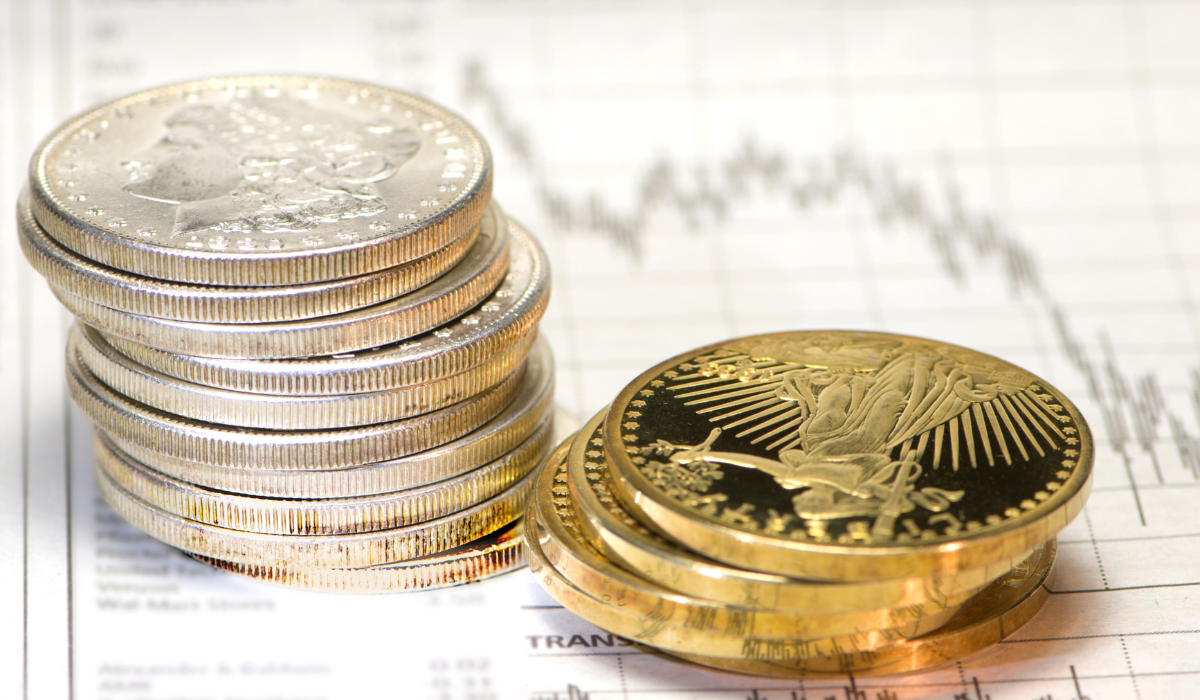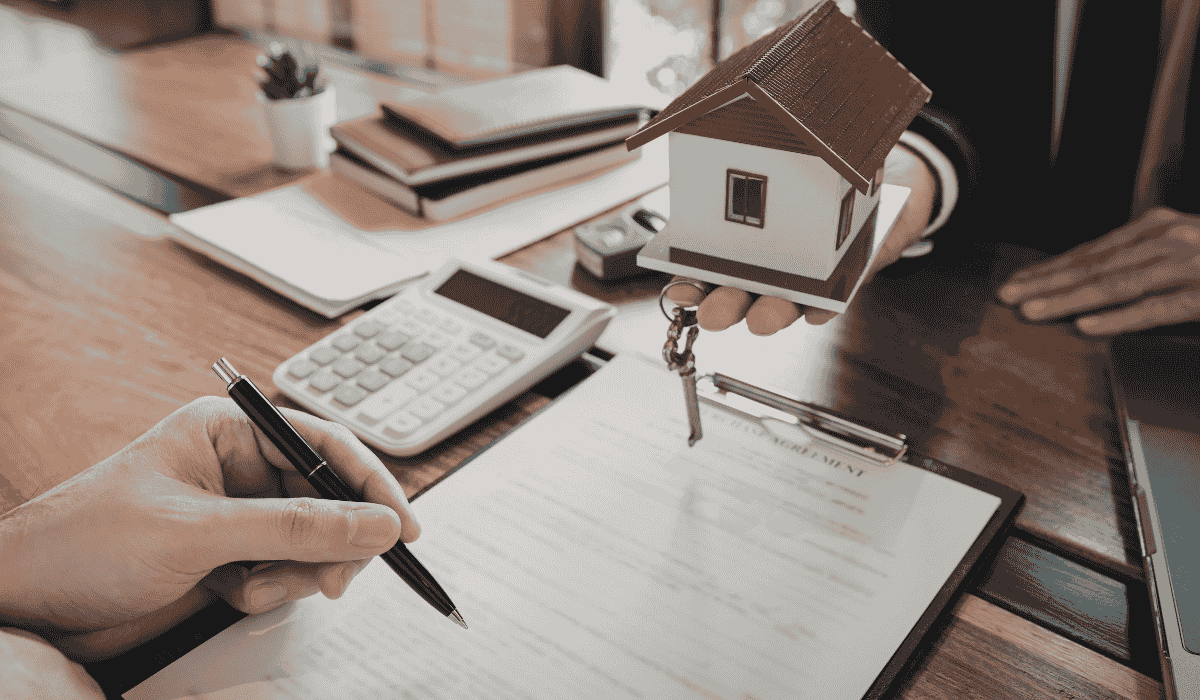Secure, Swift, and Strategic: Redefining Precious Metals Exchange Services
Making Gold and Silver Trades Safer, Faster, and Smarter for Everyone

Precious metals such as gold, silver, platinum, and palladium have long been recognized as safe havens for wealth preservation and investment diversification.
However, the process of exchanging these metals—whether selling, buying, or trading—has often been associated with uncertainty, risk, and complex valuation methods.
In recent years, the precious metal exchange industry has undergone a significant transformation, evolving to meet the demands of a modern clientele that prioritizes security, efficiency, and transparency.
This comprehensive guide explores how precious metal exchange services, such as those offered by The Perfect Piece Estate Sales, are being redefined today, focusing on secure handling, swift processing, and strategic consultation to help clients maximize value.
Whether you’re a seasoned investor, a first-time seller, or managing a family estate, understanding these changes will empower you to make informed decisions when dealing with precious metals.
Understanding Precious Metal Exchange
At its core, a precious metal exchange involves the buying, selling, or trading of metals with intrinsic value, primarily gold, silver, platinum, and palladium. These metals can be in various forms—bullion bars, coins, scrap, jewelry, or collectibles.
However, the exchange process is much more than just trading metals for cash. It requires:
- Precise testing to verify purity and authenticity
- Accurate valuation considering current market prices and premiums
- Secure handling and documentation
- Expertise in market trends and collectible valuation
- Customer education and trust-building
Today’s precious metal exchange services, including those provided by The Perfect Piece Estate Sales, are designed to handle all these facets with professionalism and care, ensuring clients receive the best possible experience.
Why Precious Metals Remain a Vital Asset
Even in an age dominated by digital assets, stocks, and cryptocurrencies, precious metals continue to hold a unique place in investment portfolios worldwide. The reasons are manifold:
1. Tangible, Intrinsic Value
Precious metals are physical assets that cannot be digitally manipulated or erased. Their value is intrinsic, based on rarity and industrial use, not just market speculation. This tangibility gives investors a sense of security not always available in intangible assets.
2. Inflation Hedge and Store of Value
As governments print more currency, the value of paper money can erode. Precious metals, especially gold and silver, have historically served as a hedge against inflation and currency devaluation, maintaining purchasing power over time.
3. Liquidity and Global Acceptance
Unlike some assets that may take time to liquidate, precious metals have high liquidity. They are accepted and recognized globally, making them easy to convert to cash or trade internationally.
4. Diversification of Investment Portfolio
Diversification reduces overall risk. Adding precious metals to an investment portfolio helps balance exposure to stocks, bonds, and other financial instruments that may be vulnerable during market downturns.
5. Industrial and Technological Demand
Beyond investment and jewelry, precious metals are used in various industries—electronics, medicine, aerospace, and more. This industrial demand supports the metals’ long-term value.
Challenges in Precious Metals Exchange
While precious metals offer many advantages, exchanging them can be challenging for both buyers and sellers. Common hurdles include:
1. Authenticity Verification
Counterfeit gold or silver products exist in the market, posing risks for buyers and sellers alike.
Ensuring authenticity requires specialized equipment and expertise, which reputable services like The Perfect Piece Estate Sales possess.
2. Accurate Valuation
Valuing precious metals isn’t always straightforward. Factors influencing price include:
- Metal weight and purity (karat for gold, fineness for silver)
- Market spot price fluctuations
- Condition and form of the item (bullion vs. jewelry)
- Collector or numismatic value (for rare coins and antiques)
Without a deep understanding, sellers may receive less than fair value, and buyers may overpay.
3. Security Concerns
Handling high-value items like precious metals involves risks related to theft, fraud, or mishandling.
Both parties require assurance that transactions occur safely and securely, as guaranteed by professional operations like The Perfect Piece Estate Sales.
4. Market Volatility
Metal prices fluctuate daily, sometimes drastically. Timing the exchange can significantly impact financial outcomes.
5. Complex Regulations
Various laws regulate precious metals transactions, including anti-money laundering (AML) and Know Your Customer (KYC) requirements. Navigating these regulations can be complex for non-professionals.
The New Standard: Secure Precious Metal Exchange Services
To address these challenges, the industry has shifted toward establishing standards that prioritize client security, speed, and strategic guidance.
1. Security Measures
- Licensed and Insured Operations: Reputable exchange services maintain necessary licenses and insurance policies to protect clients and their assets. The Perfect Piece Estate Sales operates fully licensed with these protections in place.
- Secure Physical Premises: Exchanges take place in monitored, secure locations with restricted access to prevent theft or tampering.
- Transparency and Documentation: Detailed records of each transaction—including item descriptions, weights, prices, and client identification—are maintained for compliance and trust.
- Chain of Custody: Clear protocols track every piece from evaluation through payout to ensure accountability.
2. Swift and Efficient Processing
- Appointment and Walk-in Options: To accommodate client schedules, many services, including
The Perfect Piece Estate Sales, offer flexible visits.
- Advanced Testing Technology: Use of X-ray fluorescence (XRF) analyzers and electronic gold testers provide fast, accurate metal purity verification.
- Same-Day Payment: Once valuation is agreed upon, payments are issued promptly, often within hours.
3. Strategic Consultation
- Market Insight: Experienced professionals provide clients with market trends, helping them decide the best time to exchange.
- Estate and Collection Support: Guidance is provided for clients managing inherited metals or valuable collections, including appraisal and legal documentation.
- Investment Advice: While not formal financial advice, many services educate clients about holding vs. selling based on metal cycles.
The Process of Precious Metal Exchange
Understanding the typical process can prepare you for a smooth transaction:
Step 1: Initial Contact and Consultation
Many providers offer a free consultation, which can be in-person, by phone, or online. You can provide preliminary information or photos to get an estimate from trusted experts at The Perfect Piece Estate Sales.
Step 2: Physical Evaluation
You bring your metals to a secure location where experts conduct:
- Weight measurement with precision scales
- Purity testing using XRF or acid tests
- Visual inspection for condition and markings
- Verification of authenticity
Step 3: Valuation and Offer
Based on evaluation and current market prices, a fair offer is presented. Transparency here is key, explaining how the offer was calculated.
Step 4: Agreement and Documentation
If you accept the offer, formal paperwork is completed to record the transaction and client details for regulatory compliance.
Step 5: Payment
Payment is typically made via check, electronic transfer, or cash, depending on the service and client preference.
Types of Precious Metals and Items Commonly Exchanged
Gold
Gold is the most traded precious metal and comes in forms such as:
- Jewelry (rings, necklaces, bracelets)
- Bullion bars and coins
- Scrap gold and industrial gold
Each has different valuation considerations. For example, jewelry often includes gemstones or design value, which affects price.
Silver
Silver is less expensive than gold but equally important. Common forms include:
- Sterling silverware and flatware
- Coins and rounds
- Jewelry and collectible pieces
Silver’s price is more volatile and influenced by industrial demand.
Platinum and Palladium
These metals are rarer and primarily used in automotive catalysts and electronics. Their prices tend to be higher than silver but can fluctuate with industrial demand.
Numismatic and Collectible Metals
Rare coins and antiques require specialist knowledge to value beyond metal content, sometimes commanding significant premiums.
How to Prepare for Precious Metal Exchange
Proper preparation can maximize your returns and reduce stress:
- Research Current Prices: Knowing the spot price of metals helps you recognize fair offers.
- Gather Documentation: Receipts, certificates of authenticity, and appraisal reports can enhance trust and value.
- Clean Items Gently: Dirt or tarnish may affect testing equipment, but avoid harsh cleaning that could damage pieces.
- Know Your Goals: Decide if you want to liquidate quickly or explore holding for future gains.
Digital Trends in Precious Metals Exchange
The internet has expanded access to precious metals markets through online platforms. However, these come with both advantages and risks:
Pros:
- Convenience of remote quotes and sales
- Ability to compare offers from multiple buyers
- Access to educational resources and market data
Cons:
- Increased risk of scams or fraud without face-to-face verification
- Potential delays in shipping and payment
- Difficulty in verifying authenticity remotely
Many professional exchanges now blend online and offline services, offering pre-visit estimates and digital consultations while ensuring secure in-person transactions, as practiced by The Perfect Piece Estate Sales.
Regulatory Considerations
Governments impose regulations on precious metals exchanges to prevent illegal activities such as money laundering and fraud. Key requirements include:
- KYC (Know Your Customer): Collecting identification from clients.
- AML (Anti-Money Laundering): Monitoring transactions for suspicious activity.
- Reporting: Submitting required reports to authorities for large or unusual transactions.
Working with licensed and compliant exchange services like The Perfect Piece Estate Sales protects clients and ensures legal peace of mind.
The Importance of Working With Experienced Professionals
Entrusting your precious metals to an experienced exchange service is crucial. Professionals:
- Use calibrated testing equipment for accurate results
- Understand market cycles and pricing nuances
- Provide ethical and transparent offers
- Handle transactions securely and confidentially
- Offer tailored guidance for individual needs, such as estate liquidation or investment strategy
Avoid unverified buyers or informal channels, which often result in undervalued sales or fraud.
Final Thoughts
The world of precious metal exchange has matured to meet modern needs through secure, swift, and strategic services that prioritize client trust and satisfaction.
Whether converting a family heirloom or part of a sophisticated investment plan, working with a reputable service like The Perfect Piece Estate Sales that emphasizes transparency, accuracy, and speed is essential.
By educating yourself on the process, valuing your metals knowledgeably, and partnering with licensed professionals, you can navigate precious metals exchange with confidence and peace of mind.
FAQs
How does The Perfect Piece Estate Sales verify the authenticity of precious metals?
At The Perfect Piece Estate Sales, we use advanced testing methods such as X-ray fluorescence (XRF) analyzers and electronic gold testers to ensure accurate and non-destructive verification of metal purity. These technologies allow us to quickly confirm authenticity and assess karat or fineness levels with precision. Our thorough approach protects clients from counterfeit risks and ensures fair valuation.
What factors affect the price I receive when exchanging precious metals?
Pricing depends on several key factors including the metal’s weight, purity, and the current global spot price. Additionally, the condition, form (such as bullion versus jewelry), and any collectible or numismatic value of the item influence the offer. At The Perfect Piece Estate Sales, we ensure transparent pricing and explain how each factor contributes to the final valuation.
What security measures are in place during the precious metal exchange process?
Security is a top priority at The Perfect Piece Estate Sales. Our operations are fully licensed and insured, conducted in secure, monitored locations with restricted access. We maintain detailed transaction records and implement strict chain-of-custody protocols to safeguard your precious metals throughout the entire exchange.
How quickly can I expect payment after selling my precious metals?
Once you accept our offer, payment is typically processed promptly—often the same day—through your preferred method, whether electronic transfer, check, or cash. Our streamlined process is designed to provide you with swift access to funds while maintaining accuracy and compliance. This efficiency is part of the trusted service clients receive from The Perfect Piece Estate Sales.
Are there any fees or hidden costs when exchanging precious metals?
We believe in transparency and upfront communication at The Perfect Piece Estate Sales. Any applicable fees or processing charges are clearly explained before you proceed, with no hidden costs. Our goal is to provide fair offers and a straightforward exchange experience so you feel confident throughout the transaction.











